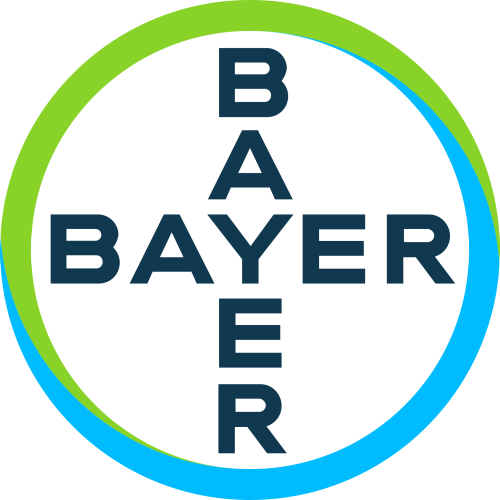
The context and purpose behind this series: “The 17 Companies Reshaping the Landscape of Enterprise AI“.
Who They Are
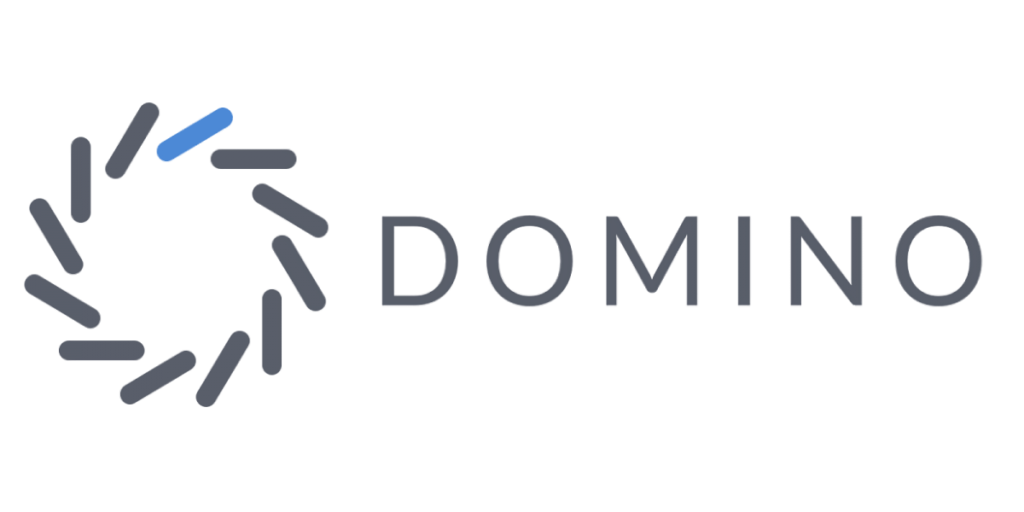
Anyone involved in surfacing data insights in their company knows that wrangling the data is a monumental task. Further, getting the right tools in the hands of the right people is paramount. This notion is deeply rooted in the mission of Domino Data Lab which is to “unleash the power of data science to address the world’s most important challenges.”
Started in 2013 by CEO Nick Elprin and CTO Chris Yang, Domino set out to provide an Enterprise MLOps platform to “enable thousands of data scientists to develop better medicines, grow more productive crops, adapt risk models to major economic shifts”, and much more.
In October 2021, Domino secured $100 million in Series F funding which brings its total funding to a little north of $220 million. This will help Domino as it has sights set on a global market with offices in San Francisco, London, and Bengaluru, India.

I like to describe Domino as an “experiment platform”: it lets data scientists improve their analyses faster by making it easy to run, track/reproduce, share, and deploy analytical models. Normally these capabilities would require a lot of engineering work and hassle to build and maintain, but Domino gives you these “power tools” out of the box.
Nick Elprin, CEO in an interview with Data Science Weekly

Understanding our customers and delivering what they need is the core of our business. We built our first prototype in four weeks and immediately went back to the data scientists to ask them what they thought. We listened to their feedback, and thankfully, some people even started to use our platform. We kept that rapid feedback cycle going — asking if our work was useful, then taking feedback and using it to improve
Chris Yang, CTO, in an interview on Medium
What They Do
First, what is machine learning? Basically, it’s a branch of artificial intelligence and computer science. The primary focus is using data and algorithms to learn and improve over time. Think of it this way, artificial intelligence without data is like a fish without water.
Second, this gets to the root of Domino Data Lab’s strength: Machine Learning Operations (or MLOps). Since Domino is narrowing its focus on this branch of AI, it can deliver cutting-edge solutions to its customers.
So, what does Domino offer that equips data scientists and empowers them to change the world?
The Domino Enterprise MLOps platform has 4 critical pillars that make it an indispensable tool.
Open and Flexible
Use the tools & infrastructure you want
Built for Teams
Reproduce work and compound knowledge
Integrated Workflows
Reduce friction across the end-to-end lifecycle
Enterprise Scale
Safely and universally scale data science
Underpinning the platform is a component structure the addresses the full MLOps cycle.
- Find, reuse, reproduce, and discuss work.
- Centralize learnings and foster collaboration.
- Instill consistent standards and best practices.
- Manage research projects and progress
- On-demand compute
- Self-serve workspaces
- Run, track, and compare experiments
- Host/Export model APIs
- Publish Apps for business stakeholders
- Schedule data refreshes
- Monitor all models for data drift & quality
- Send proactive alerts
- Assess business impact
- Monitor all models for data drift & quality
- Send proactive alerts
- Assess business impact
Most Unique / Impactful Application
Domino actually has two products as part of its platform: Domino Data Science and Domino Model Monitor. While both products are strong, the Domino Model Monitor (DMM) provides an easy view into what’s happening across the entire organization.
DMM delivers three elements that provide data scientists with what they need to focus on value-added projects.
Establish a Consistent Approach for Model Monitoring
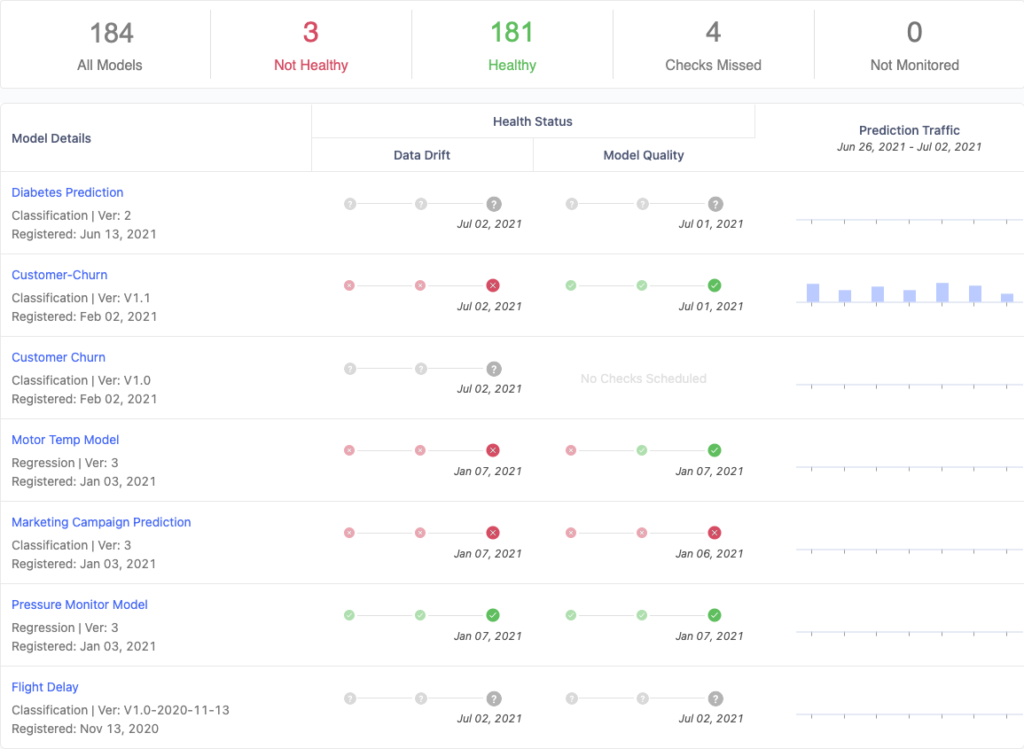
- Monitor models from any language, framework, or deployment infrastructure
- Break down departmental silos and eliminate inconsistent or infrequent monitoring practices
- Establish a standard for model health metrics across your organization
Detect Problems Before They Cause Serious Business Impact
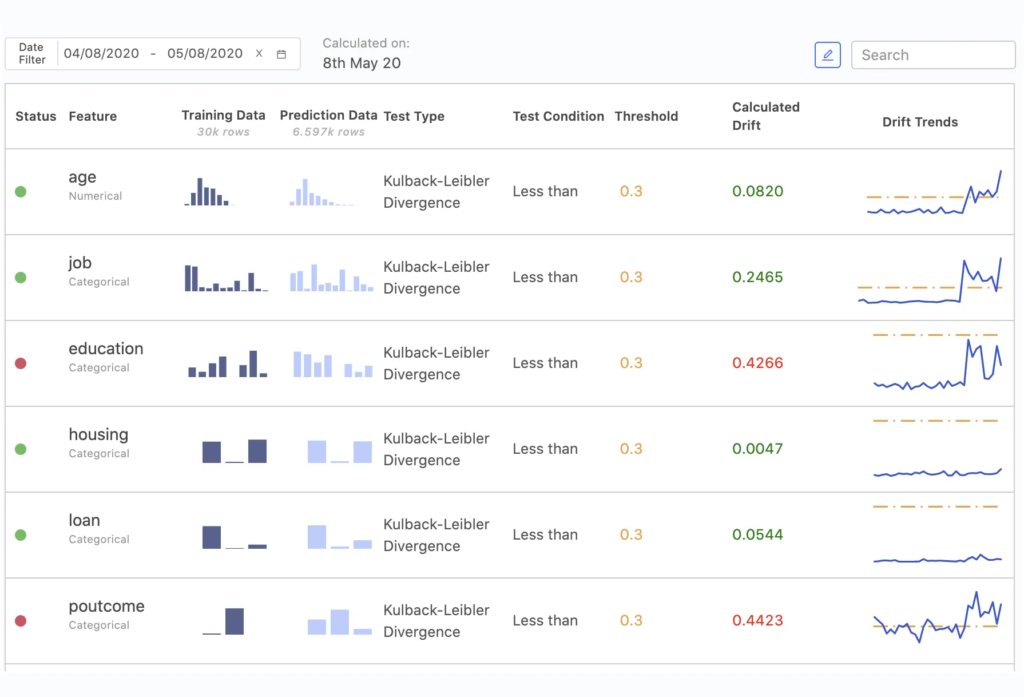
- Track data drift for both input features and output predictions
- Track prediction quality with respect to ground truth labels
- Analyze failure conditions by running different tests in an interactive way
- Quickly assess whether a model needs to be retrained or rebuilt
Automate Production Model Monitoring at Enterprise Scale
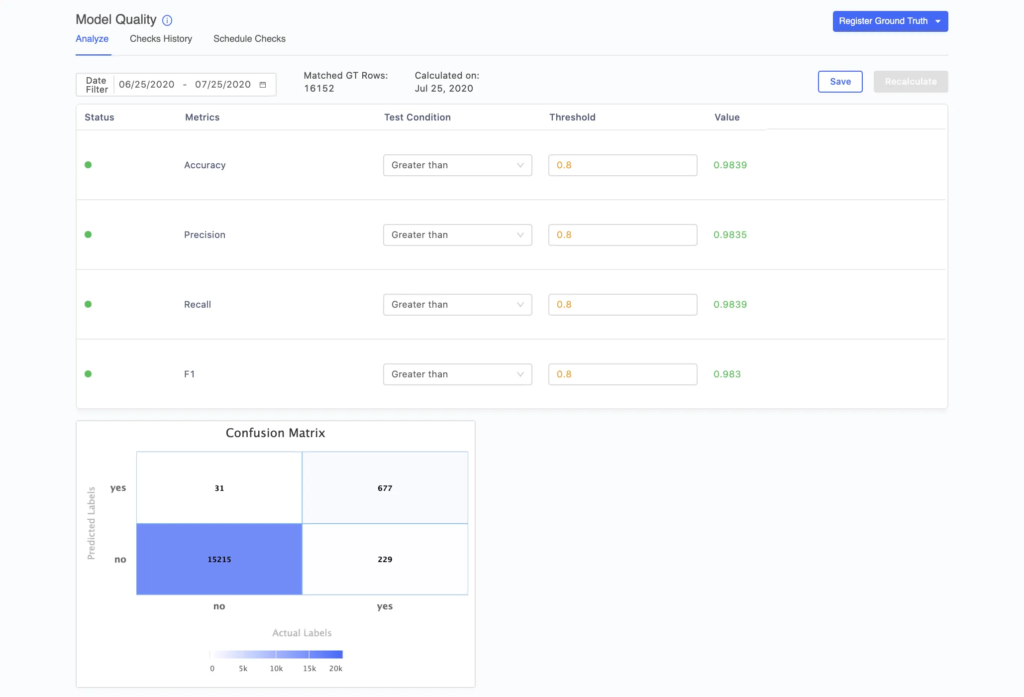
- Schedule health checks to ensure business-critical models remain in good shape
- Send proactive alerts so data scientists can focus on value-added work
- Help IT/Ops teams take charge of monitoring production models
- Integrate with any model hosting system using APIs
Who Have They Impacted
Sustainability is more than a hot topic today, but one that needs continued action behind it. And some companies are taking action. One such company is Bayer, a world-leading provider of agricultural productions.
Bayer’s team of data scientists is 500+ in numbers. Empowered with Domino’s “science@scale” platform, the Bayer data science community was able to improve over 100 data model decisions.
However, this was not an easy task. The research-based approach consists of “constant exploration, iteration, and agility.” Further, they are intended to be “probabilistic, not deterministic”. This required data scientists to be strongly collaborative in their efforts as “models must constantly be tracked, retrained, and iterated on to reflect changing data and other factors that lead to model drift”
“Domino has made it easier for users across the global enterprise, using different tools and with varied backgrounds and skill sets, to work with each other, leverage past work, and collaborate quickly.”
Naveen Singla, Data Science Center of Excellence Lead at Bayer
So, what was the outcome of this work? Bayer leadership realized the huge opportunities by leveraging Domino.
- Open and flexible ease of use: Domino allows Bayer’s hundreds of data scientists to focus on driving innovation, using their preferred hardware, software, tools, and languages — including RStudio, Python, Flask, and Shiny — with centralized management.
- Collaboration: Domino automatically versions not just code, but entire experiments along with the data, the environments, discussion threads, and necessary artifacts, meaning work is never lost and is always reproducible.
- Adoption: Bayer set up Domino within a robust discovery environment in “science@scale”, where it facilitates accelerated model development along with model delivery via the Domino API and Shiny apps. More than 75% of the company’s 500-strong community of data scientists now actively use Domino and adoption continues to expand.



